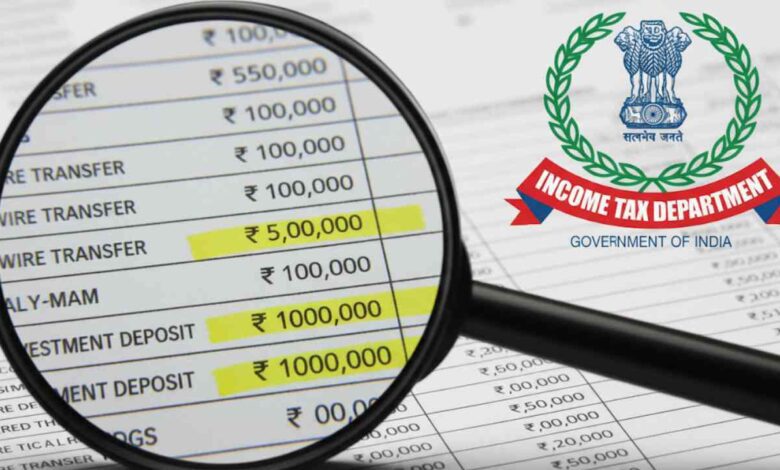High-Value Transactions: 11 Transactions to Be Cautious About to Avoid an Income Tax Notice

High-Value Transactions: Nowadays, many of us are accustomed to various types of digital transactions. But did you know that some high-value transactions are closely monitored by the Income Tax Department? If any discrepancy is found between your income and your transactions, the Income Tax Department may send you a notice. To avoid such a situation, it is crucial to know which transactions require special attention.
According to the Income Tax Act, all financial institutions like banks, mutual fund houses, broker platforms, and property registrars are required to submit information about high-value transactions exceeding a certain limit to the Income Tax Department. This process is called the Statement of Financial Transaction (SFT). Through this, the tax department can easily identify cases of tax evasion.
Here are the 11 high-value transactions monitored by the Income Tax Department:
To prevent tax evasion and maintain transparency, the Income Tax Department primarily monitors 11 types of high-value transactions. Let’s learn about these transactions in detail:
- Cash Deposit in Savings Account: If you deposit ₹10 lakh or more in cash in your savings account in a financial year, the bank reports this information to the Income Tax Department.
- Current Account Transactions: If cash deposits or withdrawals of ₹50 lakh or more occur in a current account within a financial year, that information also reaches the tax department.
- Property Sale/Purchase: If you buy or sell any immovable property valued at ₹30 lakh or more, the transaction is monitored by the Income Tax Department.
- Investment in Shares, Mutual Funds, or Bonds: If you invest ₹10 lakh or more in cash in shares, mutual funds, or bonds, that information is reported to the tax department.
- Credit Card Bill Payment: If you pay a credit card bill of more than one lakh rupees in cash, or more than ₹10 lakh through any other means, the Income Tax Department is aware of it.
- Fixed or Recurring Deposit: Depositing ₹10 lakh or more in cash in a fixed or recurring deposit in a financial year also comes under the notice of the tax department.
- Foreign Currency Exchange: If you purchase foreign currency worth ₹10 lakh or more in a financial year, that information is also sent to the Income Tax Department.
- Demand Drafts and Pre-paid Instruments: If cash of ₹10 lakh or more is used to purchase demand drafts or the Reserve Bank’s pre-paid instruments, it is also monitored by the tax department.
- Foreign Travel: If you spend ₹2 lakh or more on foreign travel, that information can also be noted by the Income Tax Department.
- Electricity Bill: If your annual electricity bill is ₹1 lakh or more, the Income Tax Department may inquire about it.
All your high-value transaction details are recorded in your Form 26AS and Annual Information Statement (AIS). Before filing your Income Tax Return (ITR), you should thoroughly check these two forms. If there is any discrepancy between the information you provided and the data in these forms, the Income Tax Department may send you a notice. Therefore, it is wise to carefully keep all documents related to high-value transactions.

